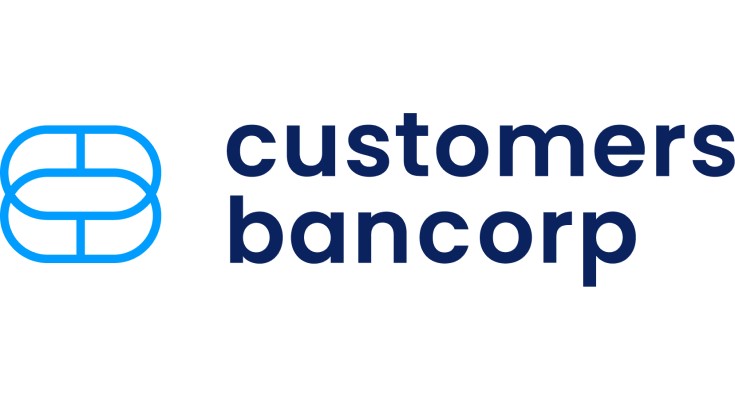
The mid-cap technology sector has demonstrated remarkable resilience in the past three years, with a notable recovery since the 2022 bear market. According to the S&P MidCap 400 Information Technology sector, mid-cap tech stocks have achieved approximately 22% annualized gains over this period. This trend highlights a substantial revaluation as interest rates stabilized and earnings began to grow again.
The performance of the SPDR S&P Software & Services ETF (XSW), which focuses on small to mid-cap software excluding hardware, mirrors this success, boasting a 19.8% annualized total return as of June 30, 2025. Conversely, cloud-focused stocks have lagged, with the WisdomTree Cloud Computing ETF (WCLD) growing at only about 9% annually. This disparity underscores a critical divide: diversified software companies have outperformed those heavily reliant on consumption-sensitive cloud services.
Two main factors contribute to this performance gap. The first is the sensitivity to interest rates and capital costs. As the market adapted to a prolonged period of elevated rates, investors shifted their focus from revenue-driven growth to a more disciplined approach, prioritizing a balance between growth and profitability, known as the Rule of 40. Companies that maintained strong gross margins and improved free cash flow preserved their valuations, while those with high cash burn rates suffered.
The second factor is the increasing integration of artificial intelligence (AI) in business operations. Companies embedded with AI in their workflows—such as security, DevOps, and data management—are experiencing heightened demand. Budget owners are prioritizing AI features that deliver tangible cost reductions and improved customer retention, rather than investing in speculative AI projects.
Defining mid-cap stocks, typically valued between $2 billion and $10 billion, reveals their unique position in the market. These firms are large enough to invest in research and development without frequent dilution yet small enough to grow at rates exceeding GDP through market share gains. Over the past three years, three trends have distinguished successful mid-cap software companies:
1. Platform consolidation, where comprehensive suites replace isolated tools.
2. Value-based contracting, aligning pricing with return on investment.
3. Integration of AI co-pilots into existing product offerings, enhancing average revenue per user with minimal customer acquisition costs.
Looking forward, the mid-cap tech sector is poised for continued bifurcation. Projections indicate an increase in outcome-based contracts and vendor consolidation, with mid-cap firms becoming increasingly competitive in AI-driven services. Transactions involving AI and automation have already started favoring these mid-tier companies over larger incumbents. As mergers and acquisitions are expected to regain momentum, the influx of private equity and strategic buyers may create additional opportunities for smaller firms.
The overall performance of mid-cap software and services over the past three years has ranged from mid-teens to low-twenties annualized returns, with significant variation based on business models. As the market continues to evaluate companies based on their ability to generate free cash flow and effectively monetize AI, the emphasis will remain on those that can demonstrate a cost-effective approach to building, operating, and securing software.
To compile a list of the best-performing mid-cap tech stocks from the last three years, we selected companies within the $2 billion to $10 billion market cap range that reported the highest compound annual growth rates (CAGR). The data, sourced from Stock Analysis, ranks companies based on their three-year return CAGR.
Here are the top performers:
Leading Mid-Cap Tech Stocks
10. Formula Systems (1985) Ltd. (NASDAQ:FORTY)
– **Market Cap:** $2.20 billion
– **3-Year CAGR:** 22.18%
– **Hedge Fund Holders:** N/A
This Israel-based IT and software holding company has experienced steady earnings growth. On August 13, 2025, it announced the acquisition of its insurance-software subsidiary by Advent International, highlighting the appetite for mature, cash-flowing AI-enabled software assets.
9. Parsons Corporation (NYSE:PSN)
– **Market Cap:** $9.37 billion
– **3-Year CAGR:** 28.33%
– **Hedge Fund Holders:** 40
Parsons Corporation, based in Chantilly, Virginia, recently acquired Applied Sciences Consulting, enhancing its capabilities in water infrastructure. This acquisition aligns with its strategy to capitalize on federal investments in climate-resilient projects.
8. Varonis Systems, Inc. (NASDAQ:VRNS)
– **Market Cap:** $6.72 billion
– **3-Year CAGR:** 28.95%
– **Hedge Fund Holders:** 37
Varonis has benefited from steady SaaS adoption and AI integrations in enterprise data security. UBS recently raised its price target for the company, reflecting positive market sentiment.
7. Aurora Innovation, Inc. (NASDAQ:AUR)
– **Market Cap:** $9.96 billion
– **3-Year CAGR:** 30.3%
– **Hedge Fund Holders:** 41
Based in Pittsburgh, Pennsylvania, Aurora develops autonomous driving systems. Recent analyst ratings suggest continued investor confidence in the company’s growth potential.
6. Zeta Global Holdings Corp (NYSE:ZETA)
– **Market Cap:** $4.75 billion
– **3-Year CAGR:** 39.51%
– **Hedge Fund Holders:** 34
Zeta’s performance is bolstered by its AI-driven marketing cloud, with ongoing acquisitions expected to enhance its revenue further.
5. Kyndryl Holdings, Inc. (NYSE:KD)
– **Market Cap:** $6.91 billion
– **3-Year CAGR:** 49.97%
– **Hedge Fund Holders:** 36
Kyndryl is making significant strides in AI-driven solutions, marking its transformation from traditional IT services to next-gen infrastructure.
4. AvePoint, Inc. (NASDAQ:AVPT)
– **Market Cap:** $3.20 billion
– **3-Year CAGR:** 58.03%
– **Hedge Fund Holders:** 33
AvePoint has shown strong growth in SaaS and cloud data protection, with analysts upgrading its rating based on recent financial performance.
3. BigBear.ai Holdings, Inc. (NYSE:BBAI)
– **Market Cap:** $2.76 billion
– **3-Year CAGR:** 70.90%
– **Hedge Fund Holders:** 20
BigBear.ai is recognized for its AI applications in defense and logistics, recently enhancing its capabilities through strategic partnerships.
2. Applied Digital Corporation (NASDAQ:APLD)
– **Market Cap:** $7.48 billion
– **3-Year CAGR:** 156.32%
– **Hedge Fund Holders:** 28
Applied Digital has been active in expanding its digital infrastructure, particularly for AI and high-performance computing.
1. Innodata Inc. (NASDAQ:INOD)
– **Market Cap:** $2.79 billion
– **3-Year CAGR:** 197.7%
– **Hedge Fund Holders:** 16
Innodata stands out for its AI-first strategy, with analysts recognizing its pivotal role in the future of AI.
As the mid-cap tech landscape continues to evolve, investors should consider the implications of these trends and the potential for sustained growth in this dynamic sector.






